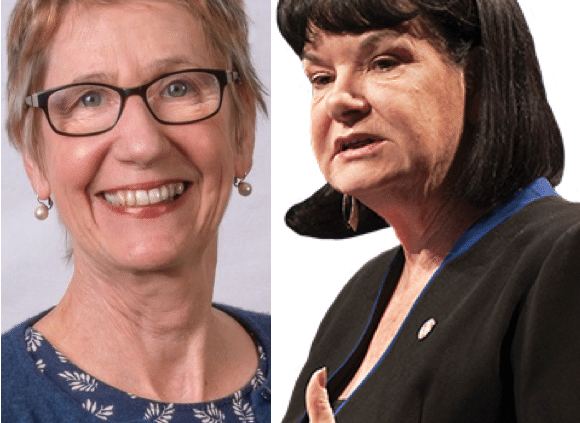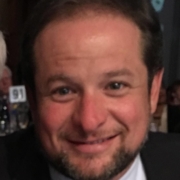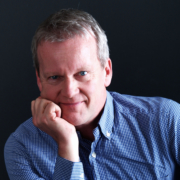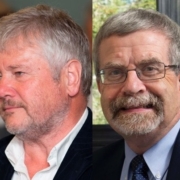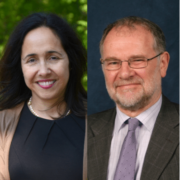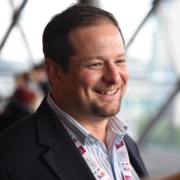Education International is the global federation of teacher unions, representing some 32 million teachers worldwide. Every four years EI, as it is commonly known, holds a World Congress to determine its policies, principles, programs, and budget for the future. It is also where the President, Vice Presidents and General Secretary are elected to new terms. The World Congress this year was composed of some 1,400 delegates nominated by and representing member organizations.
I had the privilege of attending EI’s World Congress where I met and interviewed people from around the world. Over the next 2 months, FreshEd will air some of my conversations. My hope is that these interviews will show unions in their complexity. Profoundly democratic, unions struggle to figure out how best to address the biggest issues facing the world today in ways that have material consequences for the lives of teachers and students.
But unions are often misunderstood. Right-wing politicians and capitalist elites have systematically tried to destroy the labor movement for decades. These attacks on unions have decreased union membership, lowered public opinion, and even found union leaders and members harassed, imprisoned, and – in the most extreme cases — killed. I actually met some teacher union members at the World Congress who recently got out of prison. Fearing for their safety, these members could not join me for an interview, but their stories stick with me.
So to kick off our mini-series focused on the big issues facing education unions today and into the future, I begin with a two-part show. The first part is a short interview with Susan Hopgood, president of Education International and Federal Secretary of the Australian Education Union (AEU). She explains what the world Congress is and some of the big issues being discussed.
In the second part, I interview Sharan Burrow, the General Secretary of the International Trade Union Confederation, which represents some 207 million workers in 163 countries and territories.
Citation: Hopgood, Susan & Burrow, Sharon, interview with Will Brehm, FreshEd, 166, podcast audio, August 5, 2019. https://www.freshedpodcast.com/susanhopgood-sharanburrow/
Transcript, translation, resources:
Will Brehm 2:33
Susan Hopgood, welcome to FreshEd and thank you so much for taking time out of your busy schedule and meeting me.
Susan Hopgood 2:37
It’s a pleasure.
Will Brehm 2:38
So, can you just tell me where we’re sitting right now?
Susan Hopgood 2:42
We’re sitting in Bangkok, Thailand, and we are at the 8 EI World Congress.
Will Brehm 2:49
And what is a World Congress for Education International? What does that even mean for the listener who might have no idea what any of this is?
Susan Hopgood 2:57
Probably the best way to answer that, firstly, is to say that Education International is the world body to represent the teaching profession and our member organizations are education unions in more than 170 countries around the world. And we represent 32 million educators, teachers, and educational support personnel. We are a democratic organization and the World Congress is an opportunity for us to come together for governance reasons, in the first instance, to ensure that we can elect our officers and our executive board members to develop our policies and positions and our strategies for the next four years. Of course, it also provides really important opportunities for member organizations around the globe to meet and to discuss, to share the issues that they’re facing in their own countries for their members and for public education in general.
Will Brehm 3:48
And so, during this time, here in Bangkok, and having thousands of people from all different countries coming together to talk about unions, education, issues in their own countries, what have been the big issues? What have been the topics of debate that people have cared about here?
Susan Hopgood 4:05
Absolutely. Well we structured the Congress in a way, which I think, partly answers that. The big issues are issues for the profession. What are the issues for the education profession for both teachers and for education support personnel. The issues are also around human and trade union rights very differently, because we are under attack in so many places -well the world is under attack actually in so many places. But, as in the front line of education, we are very much under attack in some countries. So, it is those sort of issues. It’s also the issues about public education and about ensuring that we can achieve a quality public education for all, and so that frames this. But overall, it’s about how we, as education unions, can take the lead in progressing those debates.
Will Brehm 5:01
One of the big topics that people have been talking about and championing and debating, perhaps, is the very issue of climate change -climate crisis. And this is a massive issue that we’ve seen students really take the lead globally. How do you, in your opinion, do you see unions and climate change and working towards, you know, massive societal and economic changes that are going to be required to continue for us to live on this planet?
Susan Hopgood 5:29
Well, of course, you know, really, climate change is the biggest threat we face, which I spent some time in my opening speech to Congress talking about -particularly because we are here in the Asia Pacific region, and something like 5 out of the 10 countries in the world that are under greatest threats from the impact of climate change in this region. There is no question that climate change is in the forefront of everybody’s minds but that we ourselves, as educators have a very, very important role to play because education is a key to actually ensuring that first of all, that our students actually acquire the skills to be able to navigate that world and to be able to be critical thinkers, and to be able to be global citizens, and involve themselves in the debates and make their demands. And we as educators also have a role to play that our students understand the science of climate change, we have a role to play in ensuring that our own members that teachers themselves are actually participating. You know, the student climate change strike movement, they are fantastic! And they are leading the way. They are telling us, “Look, we can’t wait for you adults any longer” and, they are not waiting. And I think they’ve reinvigorated us all. They’ve actually reminded us all that we can’t just sit back and say, “Look, governments are not doing enough”. We can’t sit back and say, “Isn’t this all terrible”. In 10 years’, time, it’s going to be too late. We cannot just keep sitting saying that. We actually got to take action and they have told us that they’ve done that. We support their right to do that. And we think they’re fantastic for doing so.
Will Brehm 7:09
Yeah. And how do you see unions in the future here and education unions specifically. Like what’s the vision in your mind of the future of unions in education?
Susan Hopgood 7:21
In my mind, my vision is that we are representative organizations, independent organizations, that are leading the way in all the debates around education, around social change, in the fights against, you know, despot governance, in the attacks on democracy in achieving full human and trade union rights, and absolutely making sure that every child and young person has the opportunity to have a complete, quality, free education. So that we must be working towards -we are unions that actually are showing the way and leading to the achievement of all of the full SDG goals.
Will Brehm 8:02
Well, it’s a very exciting time, I think, in terms of unions, and education, and these massive challenges that we face in the world. And so, I just want to say thank you for your tireless effort, helping Education International marshal millions of teachers and other unions together to fight for humanity. So, thank you very much, Susan Hopgood, for joining, and I look forward to the next few days of the Congress.
Susan Hopgood 8:27
Thank you very much.
Will Brehm 8:28
And now we turn to my conversation with Sharon Burrow, the general secretary of the International Trade Union Confederation, which represents some 207 million workers worldwide. She discusses unions more generally, beyond the education sector.
Will Brehm 8:45
Sharon Burrow, welcome to FreshEd.
Sharon Burrow 8:46
Thank you.
Will Brehm 8: 48
So, can you just maybe tell the listeners where we’re even sitting right now?
Sharon Burrow 8:53
Well, we’re in Bangkok. We are at the Education International Congress. This is the global congress of members of the teaching profession. So, of course, it includes school teachers, academics, support staff, all of those people who ensure that our children and indeed adult education is of the highest quality.
Will Brehm 9:19
You’ve been involved in unions for many years. Why are unions important? And what is the value of unions in your opinion?
Sharon Burrow 9:27
Well, collective action has shaped the world in a more socially just manner. Unions were born to deal with oppression. People walked off the job because it was so oppressive that they couldn’t take the exploitation any longer. We saw the birth of unions from women in clothing factories in New York City, through to teacher unions who formed up to 100-120 years ago. And when you look at why unions formed, they formed to use collective power to make changes. So, we say, our mandate -the ITC Congress mandate- is “building workers power to change the rules”. You do that through organizing, you know, and when people operate together, then you can change the rules. And history provides us with so many examples of that that it’s a tried and true pathway.
Will Brehm 10:27
With that history, I would imagine that there have been major changes to unions themselves. So how have unions changed? How would we talk about unions today in the 21st century?
Sharon Burrow 10:39
Well, the foundations are very similar, actually. For teacher unions, which was, of course, my profession. As a young adult, I trained and taught as a teacher for a decade before I became a teacher advocate through the Australian Education Union. And that was a privileged environment because as a member of the Union, you had two hearts. 1) You could fight for educational conditions for students, or for quality public education. From teaching hours, class sizes, through to public education curriculum and funding. 2) You also though could join your colleagues in, of course, bargaining for fair wages, making sure that teachers had professional standards, that they were supported through professional development to do that quality job. So, you actually could play out a professional and an industrial role with confidence. For other unions, it grew out of occupational collective action similar to teachers. Whether you’re an electrician, or a plumber, or a stonemason, going way back, or a seafarer. Originally, it was about the identity of your occupation to a large extent. But then general unions grew up too in agriculture, in hospitality now we call it in retail. Unions that had more diverse occupational interest but might have worked in a similar enterprise. So, you had enterprise unions, or in a similar industry. So, while the construction of unions cross the range of occupation and general provision, nevertheless, the ambition was largely the same -how to improve the working lives of the members of the union, their families, and therefore their community.
Will Brehm 12:34
And what about challenges today? What are some of the biggest challenges that you think are facing teacher unions specifically?
Sharon Burrow 12:40
Well, I think the challenges for society today go back to the fundamentals of peace and democracy. We have more military conflict in arms expenditure than ever since World War Two. We are saying, in fact, again, the rise of an armaments race, including mid-range nuclear weapons being purchased, even in Europe. This is unconscionable, and we risk not just disparate conflicts which are growing, but in fact, we risk the loss of the non-nuclear proliferation treaty itself if we’re not vigilant. So, having to go back to an environment where peace is a commodity, we really have to struggle for. Where people are losing trust in democracy because governments have failed to ensure distribution, and they feel like they’re living on the edge. Where 94% of workers tell you, the minimum wage is not enough to live on. When 60% of families, including middle-income families, like teachers, in most countries are living on the edge because it’s harder and harder to make ends meet. And to deal comfortably with the aspirations that even middle income families have -aspirations that keep the economy’s going with a consumption base- then the world is in a terrible situation. If you think just of the last 20 years, the world is three times richer than it was just 20 years ago. And if you go back to the origins of the social contract arising out of World War One, World War Two, the Great Depression, many times growth in GDP. Yet it hasn’t been distributed and so most people commonly think about this as the 99% versus the 1%. But in reality, it’s about the despair people are feeling around secure jobs, or the threat to their security in terms of employment, and of course, around fair and just wages, and the social protection of a safety net with vital public services like education and health that are being eroded. So, when governments have failed to distribute the wealth, failed to give people that sense of security, then in reality, you have an era where the first generations of children are likely to be worse off than their parents. That creates a lack of trust in democracy, people are walking away. Young people are actively questioning whether democracy is a good system. That frightens me, I don’t know if it frightens other people. But what’s the alternative? Fascism, dictatorship, authoritarianism, whatever name you want to use, people fought world wars to actually have peace and democracy. And we know that when people have rights, when they have the rule of law to ensure compliance, when they have an adequate wage on which they can build a life for themselves and their families with dignity. And when they have that social security or welfare system to fall back on, then peace is a much easier environment to work to shape and democracy is much more stable. So, that’s why we need a new social contract today. And educators are central to that. Public education is central to that because it’s the only environment where you can genuinely build respect for people from all over the world in terms of migrant workers, in terms of different religions, in terms of different races and beliefs. Those things are really critical to a stable, integrated society, fundamental for peace and democracy. And I’ve always believed education is at the core of a stable and civilized environment.
Will Brehm 16:43
it seems like you’re talking about the value of an education being so much further than getting a good job.
Sharon Burrow 16:50
Well, absolutely. I mean, you can’t dismiss the reality that people who have education, including higher education, and those who are members of a union, those combinations mean that you are probably likely to be up to 20% better off in your remuneration, and much better off in terms of job security. But education is about people’s humanity, about our respect for history, for societies generally, for difference. And it’s also about enjoyment, and pleasure, and the arts, and music, you know, our cultural base. So, for all sorts of reasons, education sits at the heart of a civilized society but it’s also central to a democracy.
Will Brehm 17:43
Yeah, and it would be dangerous, I would imagine, for people who aren’t advocates of democracy. You know, an educated citizenry can do things that are pretty unimaginable.
Sharon Burrow 17:52
Well, and, and an educated citizenry is an optimistic population, by and large, because they do feel like you have the tools to make change, to find the solutions, and to work with each other.
Will Brehm 18:09
One of the biggest issues that I’ve seen lately, where students have been taking the streets, there’s this massive conversation about the extinction rebellion, this existential crisis that the planet might not even be around for children today, once they grow up to be our age. How are unions involved when it comes to the climate crisis, when it comes to this massive student outpouring of protest and social mobilization that we’ve been seeing of late?
Sharon Burrow 18:40
Well, the leadership of our students is just magnificent. We’ve seen it at other points in our history but this one is timely, it’s so necessary. When the climate scientists in we are facing an extinction crisis. And we have just over 10 years to stabilize the planet, and then a lot more work to do to repair much of the damage. But the student’s activism has given people hope, it’s caused governments, first of all, to be quite oppositional, and then to actually be conscious that their future as leaders in Parliament’s depend on the votes of this generation and their parents. And so, if anything has triggered a sense that we need to raise ambition, it’s certainly the leadership of our students. But the global labor movements been at the heart of the climate debate for more than two decades. We fought for well over a decade to get just transition in the global agreement first towards Copenhagen and now, of course, realized in the Paris Agreement. We’re now building on that by educating trade unions from all sectors to go to the table and bargain for emissions reductions, just transition agreements, where you’ve got shifts in technology, or particularly shifts in energy with fossil fuels, and have to be phased out beginning with call. And those just transition agreements give people hope, they’re about securing pensions, they’re about securing income support for displacement, for skills development, and of course, for redeployment. They’re about demanding investment and renewal in communities so that people have the hope of secure jobs for themselves and their children. That’s the basis again, of building hope, and confidence, and therefore demand of governments to raise ambitions to secure good jobs on a living planet. So, we actually have been at the heart of this, it’s painful, it’s really painful. For anyone who’s walked the coal mines, who knows the history of coal miners, who built fantastically strong unions, who turned the most dangerous profession in many parts of the world into a relatively safe one, and who’ve built communities, then to see all of that being taken away is very painful. But we also have unions who are fighters. And in every walk of life, whether it’s transport, construction, manufacturing, agriculture, or the public services, every union needs to do their bit. And so, I’m proud of the union’s advocacy and commitment despite the pain and the opposition you have to tackle along the way.
Will Brehm 21:38
And what about economic changes that are going to be required to create a sustainable world to not continue polluting the levels we are through the whole process of consumption, you know, consumption gone mad in a way. So, are you hopeful that we, as a global society, would be able to imagine new economies? I mean, is that even going to be possible?
Sharon Burrow 22:02
I think, absolutely. First of all, the current model of globalization has failed us, the economic model has failed working people. That’s why you have massive inequality, the 99% versus the 1%. And so, we have to rebuild the economic model. And we have to do that with a sustainable frame. So, why should we not reform the way we think about wrappings, the use of plastics. I had a young industrialist say, in a workshop not too long ago, “If you can’t reuse, or recycle the product, don’t deploy it in the first place”. It’s new thinking, it’s challenging but there are also opportunities for jobs, for new knowledge, and, of course, for the way in which we live, which is less disposable, if you like. I think all of those things provide great opportunities. And there’s certainly new frontiers of knowledge, and technology, and innovation, that, again, schools and universities will provide the basis for.
Will Brehm 23:06
And what about the future of education unions themselves? How do you see this future?
Sharon Burrow 23:11
I think the future for unions generally is bright. Yes, of course, we have to be constantly thinking about renewal. We have to be constantly thinking about inclusivity, and how you provide the floor of that new social contracts, so all workers are included. And when you have up to 60% of workers now working informally, including many in the care sectors, then we need to put rights, again, that minimum living wage, we have to put maximum hours of work and safe workplaces under all of those workers. But at the same time, we have to use our collective strength to bargain for alternate futures. And to make sure that full employment remains part and parcel of our demands of government.
Will Brehm 24:02
One of the things I worry about is the negative narrative that sometimes people have of unions. I think of examples of Australia recently, their election where Bill Shorten, the Labour leader had such a negative narrative on his name and then, the country ended up electing Scott Morrison -a deeply conservative individual. I think of Jeremy Corbyn in the UK and the massive amount of, sometimes, infighting inside the Labour Party itself over what Jeremy Corbyn stands for, and I just wonder how do we counter this negative narrative sometimes that prevails when people think of unions, and union leaders, and even their connection to politics.
Sharon Burrow 24:47
Most of that negativity is not reflected in the community. All sorts of research will show you that people know the role of unions, that their warm about unions, that they’ve had mothers, fathers, uncles, aunts, who were union activists, and leaders, and I hear those stories every day. You know, when I have a privileged job, probably one of the most privileged in the world where we can go into any community in the world, and you’ll have an instant family who share a set of values, who will stand up against exploitation, dehumanizing conditions every day, despite the risk to themselves, then I don’t think that the community thinks of unions as being negative. I think conservative politicians -and sometimes progressive politicians- actually find unions challenging because we challenge them. I mean, we make trouble. I always say, you know, I have the best job in the world, because my job is to make trouble where I see exploitation or oppression, or failure to provide decent working and living environments for people. On the other hand, when we see governments with courage, with commitment to their people, with a commitment to the rule of law to protect their citizens, then we’re their best friends. So, whether it’s an employer, whether it’s government at all levels, from municipalities to the national level, then governments have to make a choice. They want people on side, and that means us, or they fight progress and decency by attacking unions. But it’s never worked. We’re used to being seen as troublemakers. On the other hand, unions are here, and they’re here to stay. No matter what the shifts in society are. Unions aren’t going anywhere. Yes, we have the challenge of union renewal and shifting sands of technology and climate and all of those things. Jobs will change. They’ve always changed. If you look at the industries, they want change. You may add new ones. But, we always had telecommunications, we just don’t have the telephone exchanges anymore. We’ve always had construction, we just have new equipment to deal with it. We’ve always had industry, and energy, and public services. So, whatever the industry, it will exist. Will the jobs shift or the technology shift? Yes, of course. But unions will find ways to shift with them. And progressive governments, where they deserve to be reelected will be part of the shift to look after people, whatever the environment. Oppositional governments, who people are voting for, out of fear, they will actually be tackled by those who are seen today as unpopular -tomorrow, history will prove them right. And unions are mostly in that environment.
Will Brehm 27:42
You know, we’re sitting here in Bangkok, seeing this big World Congress of all these different unions coming together and what I’m most amazed by is just the level of sort of palpable democracy that’s here. People are voting, people are debating, people are reaching consensus and it just makes me incredibly hopeful to sort of have this tangible sense of democracy which sometimes can feel so abstract. And it just makes me realize that, you know, I’m not sure how many other places in the world actually can say, in these spaces, we can actually be truly democratic.
Sharon Burrow 28:15
Well, I think democracy is fundamental to actually shaping a society, whether it’s on a micro level, whether it’s in global forums like this, or whether it’s our governments at all of those levels. And one of the challenges is, how do we rebuild democracy for people beyond our own organizations. How to government democracies not just take responsibility for building living standards, improving rights, making sure the rule of law is there, using our wealth to actually genuinely prosper in the sense of collective prosperity and reporting to people about that. Unions are at the core of demanding it and we civil society, it is in fact the power of people that shapes the future. But you would have also seen, not just that kind of rules-based environment of the debating hall, you would have seen, I’m sure arguments in the corridors.
Will Brehm 29:11
Absoloutely! It’s not easy.
Sharon Burrow 29:12
Caucus meetings to build the commitment to a common position, you know, discussions around amendments and how you could change it knowing you might not be able to oppose it, but you might be able to reshape it. So, democracy is messy! It’s chaotic, it’s messy but you know what, it’s the best system we you have, and it has to operate at all levels.
Will Brehm 29:33
And that’s why it’s so beautiful in my mind. I mean, that messiness is sort of what makes it so beautiful.
Sharon Burrow 29:38
Yeah, sometimes I’m not sure “beautiful” is how I’d characterize it, but it certainly is something we need to protect, and we need to fight for.
Will Brehm 29:45
Well, Sharon Burrow, thank you so much for joining FreshEd and keep on fighting.
Sharon Burrow 29:49
Thank you.
Education Trade Unions: The Big Issues

